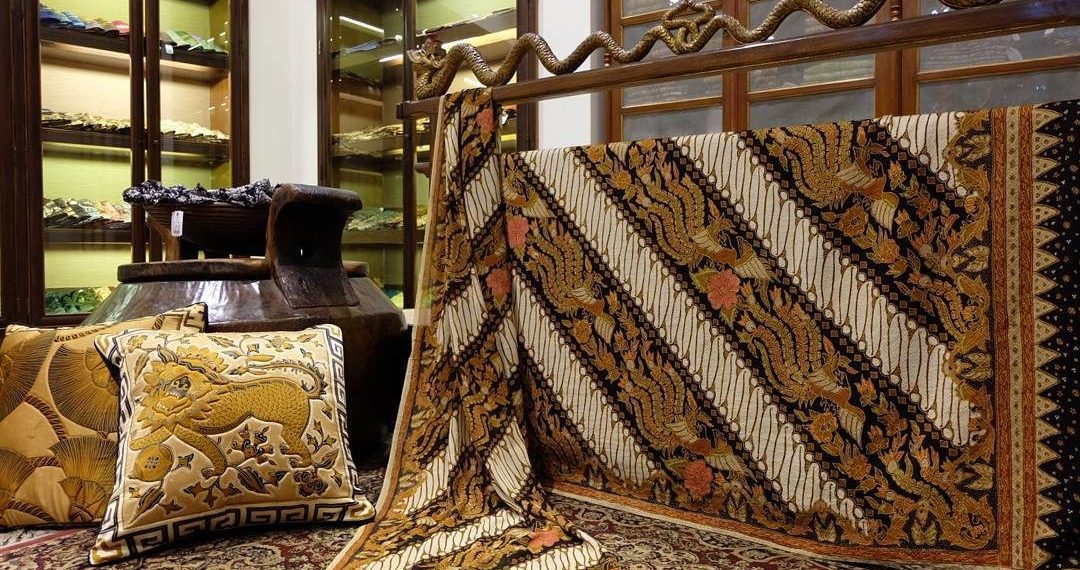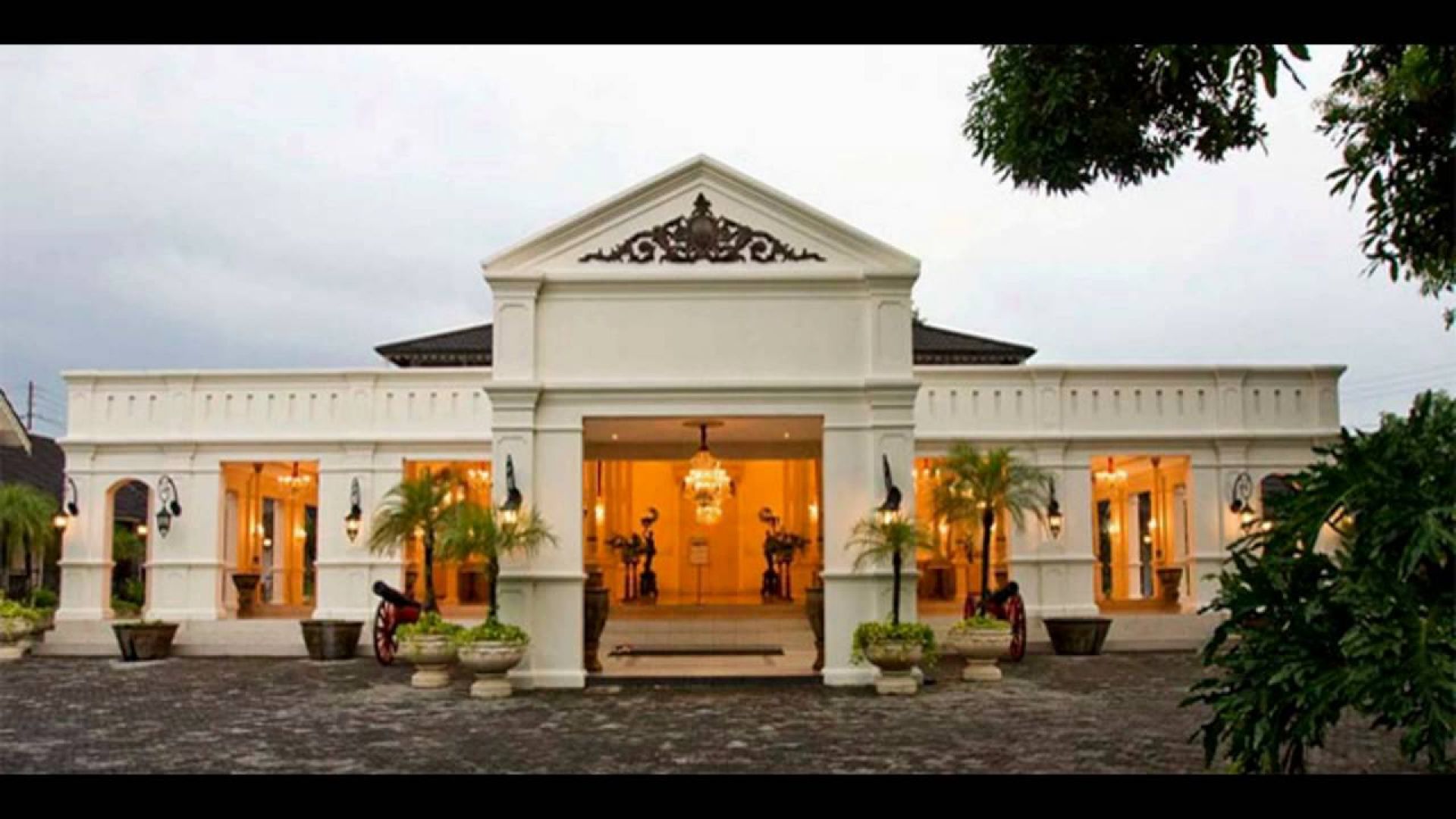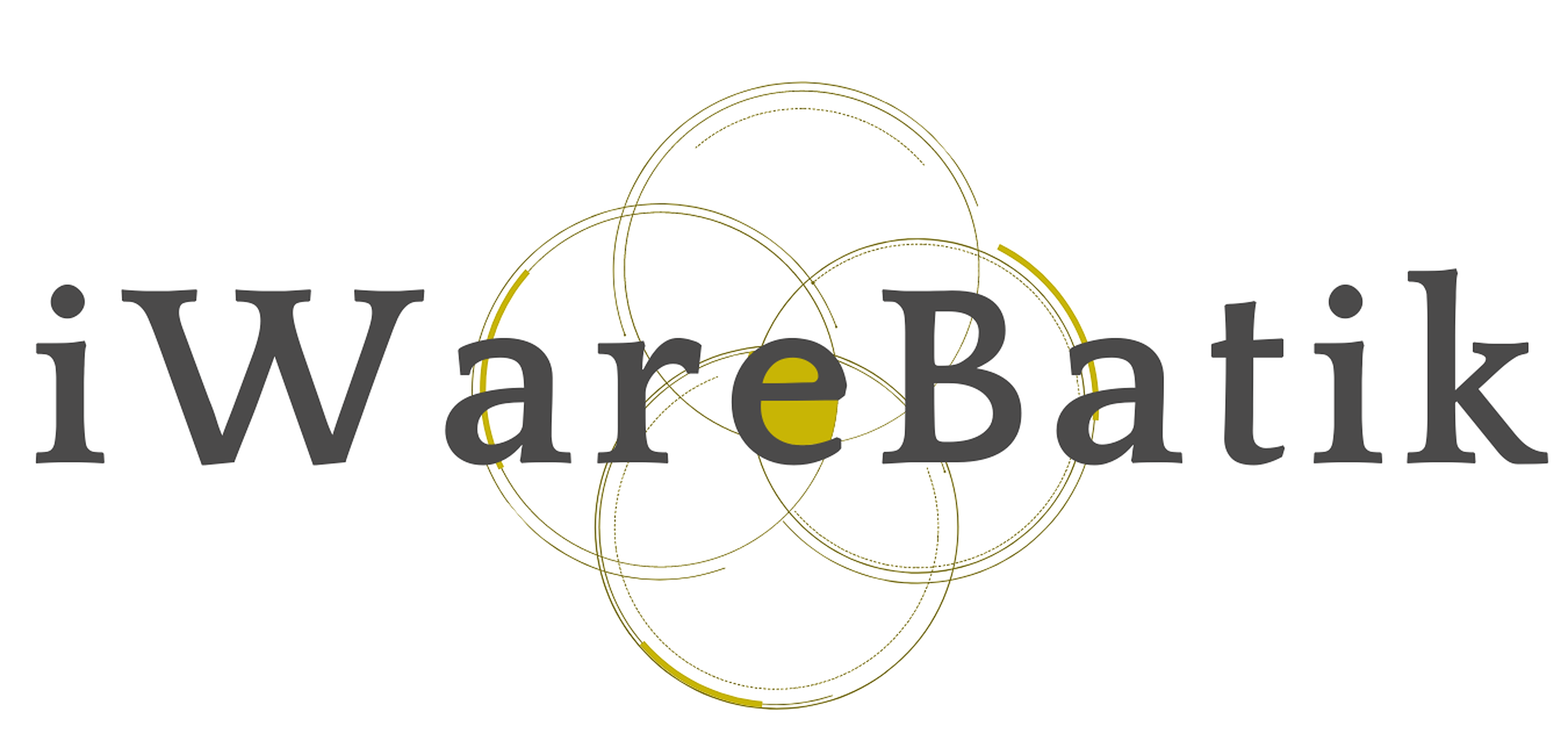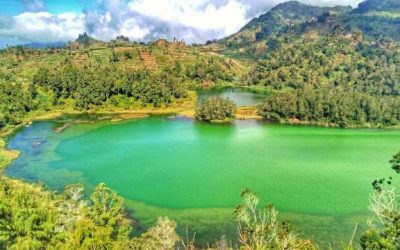Home / Batik Regions – Western Indonesia – Java Island – Central Java / The Danar Hadi Batik Museum
Cultural Destination
Embrace the spirit of the place!
The Danar Hadi Batik Museum

Batik of Royal Palace at Danar Hadi Museum (photo: IndonesiaBatik)

The Danar Hadi Museum in Solo (photo: Instabook)
The Danar Hadi Batik Museum
Do you want to travel the time through batik? One of the must-visit destinations in Central Java for the purpose is the Danar Hadi Batik Museum. It stores a collection of more than 1,200 batik textiles, ranging from ancient ones preserved from the days of the Mataram Empire in the 18th Century to the latest ones. Here you could learn and discover the meanings of the motifs, the cultural influences reflected in the motifs, as well as the historic usage of each textile. The museum also provides a guided tour in English, with an expert giving in-depth explanation of each piece. The museum is integrated with the batik gallery and workshop, where you could observe the production and buy premium quality batik textiles at affordable prices.
Tourist Attractions in Central Java
Golden Sunrise in Dieng Plateau
Dieng Plateau mountain complex is a magic place to experience two different kinds of sunrise, which are
Telaga Warna Lake in Dieng
Telaga Warna or Color Lake is a unique natural phenomena of lake whose colors change frequently. The lake contains high
Borobudur Temple UNESCO WHS
Borobudur Temple is the biggest Buddhist temple in the world and is inscribed as UNESCO
Central Java
Batik Motifs
Parang Seling
Parang Seling or “alternating daggers” is a royal batik motif. It is a feminine variant of
Gurdo Solo
Gurdo or garuda bird is the mount of the Indian god Vishnu. As the Sun Bird,
Sido Mulyo
Sidomulyo is one of the classical motifs, which is specifically used for the bride’s costume in
Discover
Indonesian
Batik
Motifs
Gorga Simeol-Meol
The Gorga Simeol-meol is a pattern of plant tendrils. it is regarded as a symbol of longevity and
Buketan Bali
The Balinese bouquet (Buketan Bali) is a floral arrangement and the name is
Srimanganti
The name of the Srimanganti motif is derived from Palace’s hallway that connects to
Prada Papua
The word “Prada” in the Javanese-Indonesian dialect means a batik textile that
Gajah Way Kambas
The motif illustrates the Lampung’s natural reserve, the Way Kambas. it also symbolizes
Karawo Pinang
Pinang refers to the Palm areca tree. This motif is considered as the original
Rumah Mamuju
the Batik motif illustrates the house of Mamuju King with the stairs, located on the left of the wooden stage house
Gurdo Solo
Gurdo or garuda bird is the mount of the Indian god Vishnu. As the Sun Bird,
Sido Mulyo
Sidomulyo is one of the classical motifs, which is specifically used for the bride’s costume in
Karawo Mahkuta
Mahkuta refers to Gorontalo’s traditional crown. It represents noble characters of
Leuit Sijimat
This motif reflects the daily activities of the Baduy tribe in Banten. The main ornaments of batik motif consist of:
La Galigo
La Galigo is a literary work of the Buginese Epic that has 300 thousand epic lines. It is considered even
Sekar Jati
Sekar means flower and Jati refers to teak trees that symbolizes a strong mental character that
Gonggong Siput
Gonggong (Strombus Turturella) is one type of sea snail found around
Wakatobi
It symbolizes the coastal beauty of the Wakatobi island and the symbol of Patra symbolizes
Sekomandi
Its philosophical meaning is the eternal union which refers to a saying “until death do us part”
Sero Tangga
The Sero Tangga illustrates an endearing feeling and sacrifices of a person to fulfil
Pala Salawaku
This motif illustrates the unique weapons of the Maluku region, namely
Gentala Arasy
Built as high as 80 meters, the tower also highlights the historical side of
Pattimura
Pattimura is the name of an Indonesian hero who fought against colonialism in
Angsa Duo
According to legend, the Angso duo batik motif is a pair of swans that are believed to have led Princess
Besurek Rafflesia
The term “Basurek” refers to a textile that contains letters or inscriptions
Parang Rusak
Another meaning behind this motif is an unconquerable spirit, symbolized by
Manguni Minahasa
Manguni is identified as the symbol of the Minahasa people. Manguni is known as a
Tabir Tanjung
Tanjung flower is a type of Cherry tree flower, which is commonly found in
Pohon Hayat (Tree of Life)
The Batik motifs in Lampung are dominated by the acculturation of Buddhist and
Jumputan Bintang
The word Jumputan means the tie-dye technique, while the word “Bintang” refers to
Burung Bidadari
Bidadari birds are endemic birds in Halmahera. This motif represents an
Daun Simpor
This motif is inspired by the Simpor plant (Dillenia Suffruticosa) which is a typical
Daun Sirih
This motif illustrates betel leaves that are used by Lombok communities as traditional
Paqbarre Allo
The word “Barre” means round and “Allo” means the sunlight. This motif is interpreted as
Singayaksa
The Singayaksa motif comes from the name of a place where Sultan Hasanuddin used to
Bekantan Pakis
This motif represents Pakis Haji (Polystichum setiferum), an endemic plant in
Kerawang Tegak Aceh
The Vertical Upright (Kerawang Tegak) Motif symbolizes a person who has a strong
Besurek Rembulan
This batik illustrates praise for God who created the wonderful universe
Enggang Dayak
Local people beliefs that hornbills are an incarnation of the Commander of the Birds. It has supernatural
Pati-Pati Pinehiku
It symbolizes the hierarchy in society and the social status of the Mekongga
Dayak Taghol
Dayak Taghol has a distinctive style of four curved lines and small dots. This motif represents
Lipaq Sabe
Lipaq Saqbe contains a simple geometric classical motif with various flower decorations. This textile is
Tangerang Herang
Tangerang Herang motif is a symbol of Tangerang city. The Tangerang Herang batik motif consists of
Awan Berarak
Awan Berarak is a combination of Dayak motifs and Malay patterns. The word ‘Awan Berarak’ means the
Rangkiang
The word “Rangkiang” refers to the rice granary in the Minangkabau language. It symbolizes
Durian Pecah
Broken Durian motifs depict the foundation of faith. The second half signifies the mastery of
Parang Seling
Parang Seling or “alternating daggers” is a royal batik motif. It is a feminine variant of
Tanah Liek
The word “Tanah Liek” refers to clay in Minang language. It is also known as
Wirasat
Wirasat or divine inspiration is a gift from God. This inspiration is symbolized by
Hiu Taliyasan
Indonesia is also home to the world’s largest fish, the whale shark (Rhincodon typus). Hiu Taliyasan refers to
Desa Na Tolu
The Desa Na Tolu characteristic pattern symbolizes the Batak philosophy of existence and
Daun Lada Hitam
The black pepper motif represents the main commodity of Bangka Belitung
Malinau Cultural Festival
You will witness a unique competition that might not be found other than in
Merak Ngeram
The hatching peacock motif has a very deep meaning which refers to the sacrifice and
Bultiya
The word ‘Bultiya’ is an acronym of the three major tribes in North Kalimantan, namely
Teguh Bersatu
This batik motif shows the strength of the people of Kupang. It also represents a sense of
Pucuk Rebung Riau
Pucuk Rebung symbolizes heart determination in achieving goals, good luck, and
Kaganga Tanah Rejang
If Batik Besurek combines Arabic calligraphy motifs, then the Kaganga batik takes
Kasih Tak Sampai
‘Kasih Tak Sampai’ is an idiom in the Indonesian language which refers to
Insang Ikan
Insang refers to the gills of the fish. This is a typical pattern of Malay ethnic who inhabits
Ake Patra
Ake is related to the divinity and the composition of the universe. It is a symbol of
Biji Kopi
The coffee seeds motif illustrates the pride of local coffee specialities in
Tengkawang Ampiek
With its many advantages, the Dayaks use this leaf in ritual ceremonies. This plant is a symbol of
Bomba Mawar
This motif means sacred love for family, kingdom, and God; It also illustrates
Bintik Tujuh
The Bintik Tujuh (Seven Dots) motif has 7 white spots and green color gradation as
Kawung
The Kawung motif was created by Sultan Agung Hanyokrokusumo (1593 – 1645) as a symbolic gift for
Gedhog Kembang Waluh
a combination of Javanese cultural motif of the Majapahit kingdom (XII-XIV century) with
Gamolan
This motif illustrates Gamolan, a bamboo musical instrument of Lampung that is
Taiganja
Taiganja is a precious gold pendant that shows the social status of the Kaili family. It is
Honai
The Honai is inspired by the traditional house of the Papuan community living in
Salakanagara
Salakanagara batik motif illustrates the first kingdom in the Betawi land
Jupri Kembang Teh
Kembang Teh illustrates the tendrils of tea plants that grow in the highlands of
Lontara
The Lontara script itself is a typical ancient script of Bugis and Makassar communities. History records that
Ukir Sentani
The Ukir motif is a batik motif that is inspired by various traditional Sentani wood carvings
Bale Lumbu
This motif signifies the welfare of the ancient Sasak society. Bale also symbolizes the



